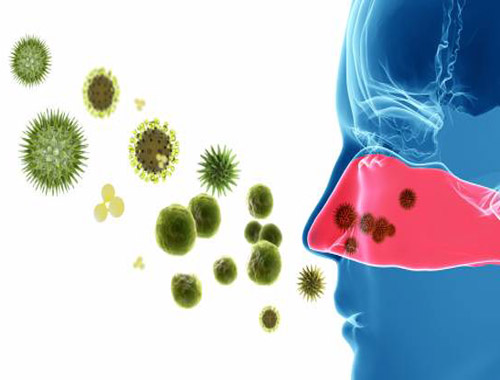Allergies

Published: 18 Jun 2025
ICD9: 995.3 ICD10: T78.40XA ICD11: 4A8Z
"Allergies" is a broad term that describes a condition in which your immune system reacts abnormally to a foreign substance.
This substance, called an allergen, is usually harmless to most people.
Here's a breakdown:
![]() What it is: An allergy is a hypersensitivity reaction of the immune system. Your body mistakenly identifies a harmless substance as a threat.
What it is: An allergy is a hypersensitivity reaction of the immune system. Your body mistakenly identifies a harmless substance as a threat.
![]() Allergens: These are the substances that trigger allergic reactions. Common allergens include:
Allergens: These are the substances that trigger allergic reactions. Common allergens include:![]()

![]() Foods (e.g., peanuts, tree nuts, milk, eggs, shellfish, wheat, soy)
Foods (e.g., peanuts, tree nuts, milk, eggs, shellfish, wheat, soy)![]()

![]() Pollen (from trees, grasses, weeds)
Pollen (from trees, grasses, weeds)![]()

![]() Dust mites
Dust mites![]()

![]() Pet dander (from cats, dogs, etc.)
Pet dander (from cats, dogs, etc.)![]()

![]() Insect stings (e.g., bees, wasps)
Insect stings (e.g., bees, wasps)![]()

![]() Medications (e.g., penicillin)
Medications (e.g., penicillin)![]()

![]() Latex
Latex![]()

![]() Mold
Mold
![]() Immune Response: When you're exposed to an allergen, your immune system produces antibodies called Immunoglobulin E (IgE). These antibodies attach to mast cells, which are found throughout your body. The next time you're exposed to the same allergen, the IgE antibodies trigger the mast cells to release chemicals like histamine.
Immune Response: When you're exposed to an allergen, your immune system produces antibodies called Immunoglobulin E (IgE). These antibodies attach to mast cells, which are found throughout your body. The next time you're exposed to the same allergen, the IgE antibodies trigger the mast cells to release chemicals like histamine.
![]() Symptoms: These chemicals cause the symptoms of an allergic reaction, which can vary from mild to severe. Symptoms may include:
Symptoms: These chemicals cause the symptoms of an allergic reaction, which can vary from mild to severe. Symptoms may include:![]()

![]() Skin rashes, hives, itching
Skin rashes, hives, itching![]()

![]() Sneezing, runny nose, nasal congestion
Sneezing, runny nose, nasal congestion![]()

![]() Watery, itchy eyes
Watery, itchy eyes![]()

![]() Nausea, vomiting, diarrhea
Nausea, vomiting, diarrhea![]()

![]() Difficulty breathing, wheezing
Difficulty breathing, wheezing![]()

![]() Swelling (e.g., of the lips, tongue, face, throat)
Swelling (e.g., of the lips, tongue, face, throat)![]()

![]() Anaphylaxis (a severe, potentially life-threatening allergic reaction)
Anaphylaxis (a severe, potentially life-threatening allergic reaction)
![]() Diagnosis: Allergies are usually diagnosed through skin prick tests, blood tests (measuring IgE levels), or elimination diets (for food allergies).
Diagnosis: Allergies are usually diagnosed through skin prick tests, blood tests (measuring IgE levels), or elimination diets (for food allergies).
![]() Treatment: Treatment options include:
Treatment: Treatment options include:![]()

![]() Avoiding the allergen
Avoiding the allergen![]()

![]() Antihistamines (to relieve mild symptoms)
Antihistamines (to relieve mild symptoms)![]()

![]() Decongestants (to relieve nasal congestion)
Decongestants (to relieve nasal congestion)![]()

![]() Corticosteroids (to reduce inflammation)
Corticosteroids (to reduce inflammation)![]()

![]() Epinephrine (for anaphylaxis; an EpiPen is used to inject epinephrine)
Epinephrine (for anaphylaxis; an EpiPen is used to inject epinephrine)![]()

![]() Allergy immunotherapy (allergy shots or sublingual tablets, to gradually desensitize the body to the allergen)
Allergy immunotherapy (allergy shots or sublingual tablets, to gradually desensitize the body to the allergen)
In summary, allergies are a common condition caused by an overreaction of the immune system to harmless substances, leading to a variety of symptoms. If you suspect you have an allergy, it's important to see a doctor or allergist for diagnosis and treatment.